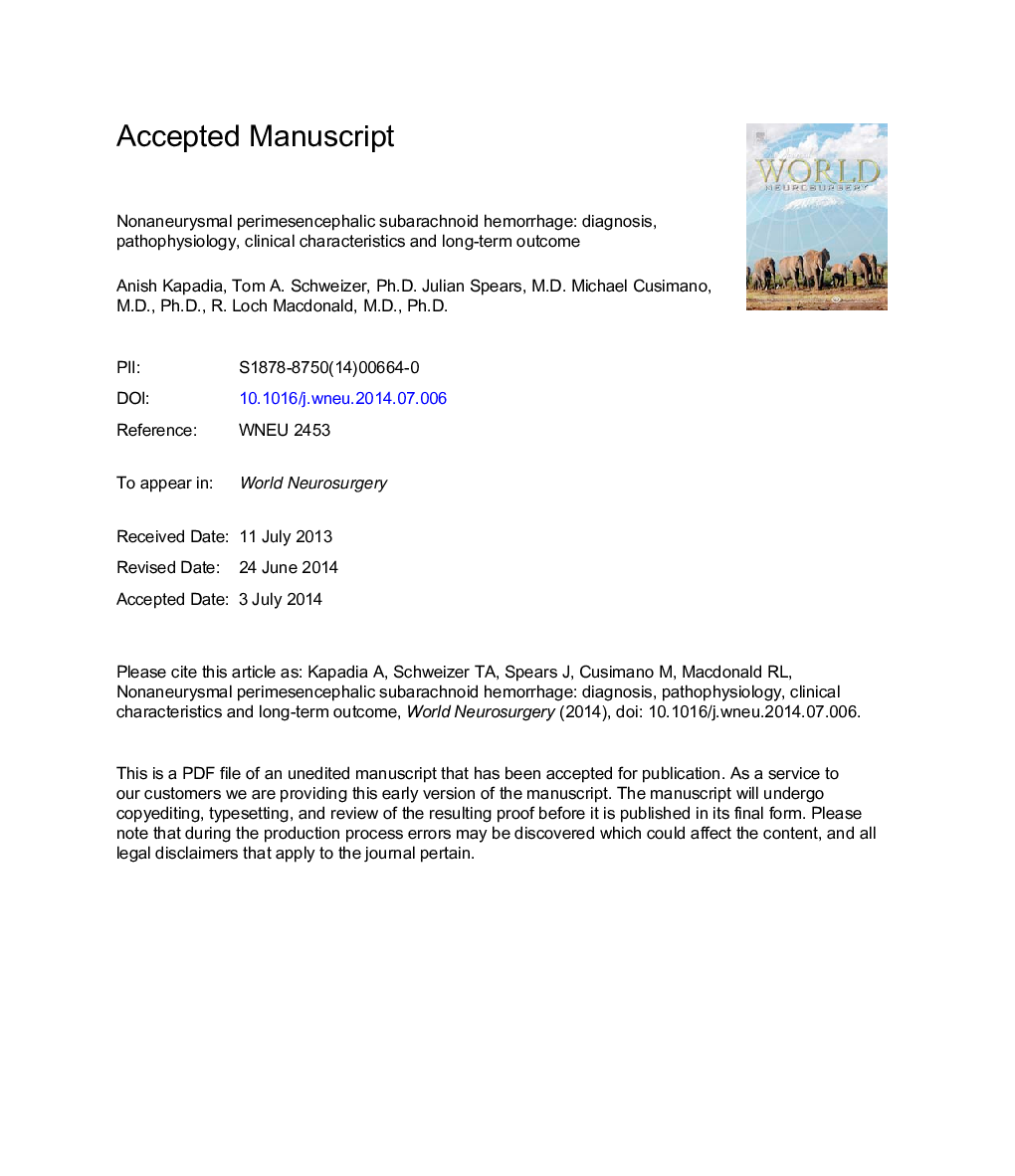| Article ID | Journal | Published Year | Pages | File Type |
|---|---|---|---|---|
| 6045617 | World Neurosurgery | 2014 | 29 Pages |
Abstract
Patients with nonaneurysmal perimesencephalic subarachnoid hemorrhage (NAPSAH) have no discernible source for the bleeding and generally are considered to have a benign condition. Correctly diagnosing these patients is essential because a missed aneurysm can have catastrophic consequences. Those presenting with NAPSAH have a low risk of complications and better outcome than patients presenting with aneurysmal subarachnoid hemorrhage; however, a limited body of literature suggests that not all of these patients are able to return to their premorbid functional status. Clinical screens of cognitive status, such as the mini-mental status examination, suggest good recovery of these patients, although these tests may lack sensitivity for identifying deficits in this patient population. More comprehensive neuropsychologic testing in some studies has identified deficits in a wide range of cognitive domains at long-term follow-up in patients with NAPSAH. Because these patients often do not lose consciousness (and thus do not have substantial transient global ischemia) and they do not undergo a procedure for aneurysm repair, the cognitive sequelae can be explained by the presence of blood in the subarachnoid space. NAPSAH presents an opportunity to understand the effects of subarachnoid blood in a clinical setting.
Keywords
ADLPerimesencephalicWFNSDCIaSAHGCsSAHMMSEGOSMRSCTAPPVComputed tomography angiographypositive predictive valuenegative predictive valueMRIDelayed cerebral ischemiaMagnetic resonance imagingcomputed tomographySubarachnoid hemorrhageAneurysmal subarachnoid hemorrhageconfidence intervalWorld Federation of Neurological SurgeonsActivities of daily livingReviewMini-Mental State ExaminationNPV یا negative predictive valueModified Rankin scaleGlasgow Outcome ScaleGlasgow coma scale
Related Topics
Life Sciences
Neuroscience
Neurology
Authors
Anish Kapadia, Tom A. Schweizer, Julian Spears, Michael Cusimano, R. Loch Macdonald,
